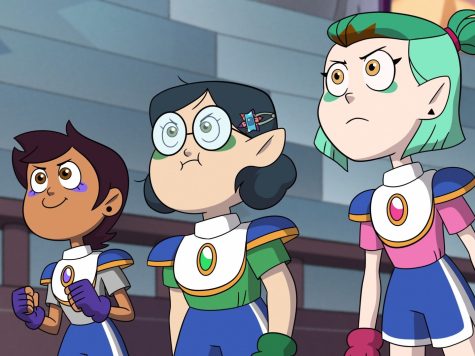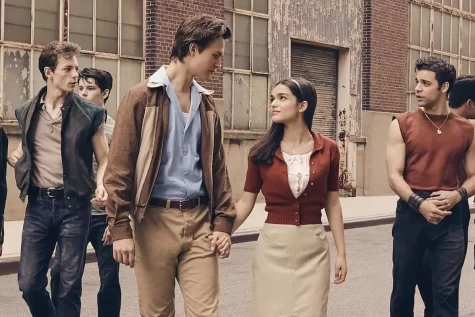2021 Oscars Best Picture Rankings
This year’s Oscars come during turbulent times. With the slough of problems that arose from the pandemic, many productions were delayed. Enough movies were produced, though, to generate eight contenders for the coveted “Best Picture” award.
The entries range from period pieces to contemporary commentaries. Many movies nominated this year have garnered both praise and derision from critical spheres, meaning that no matter what movie wins, there is likely to be controversy.
The following is my ranking of the nominated films, along with a short review that explains my position. I know that I am excited about the Oscars this year. May the best film win!
Editor’s Note: This list is in descending order, with the Reviewer’s pick for Best Picture at the bottom.
Nomadland (3/10)
A surface-level portrayal of labor and American Nomadism, Chloé Zhao’s Nomadland is a million contemporary transgressions overdone, such that the result is not challenging or even interesting but listlessly boring. Many aspects of the film feel mass-produced; the visual tone, the forgettable score, the faux-profound half-conversations. Frances McDormand does her best at keeping a straight face while pooping in a bucket but can not escape the fact that her character is not actually very likable. She refuses all help from people who care about her, and the environment that she claims a connection with is actively being destroyed by her gas-guzzling lifestyle and former husband’s work. Working better as a critique against its subject matter and creation, Nomadland has no style nor substance, an empty work that leaves this audience tired and disappointed.
Promising Young Woman (4/10)
Emerald Fennell’s Promising Young Woman tells the story of a woman who executes a plot of revenge against the people responsible for the rape of her best friend. Along the way, she falls in and out of love and kidnaps a child. While the setup does seem intriguing, it quickly begins to feel repetitive. Such is the case with the soundtrack, save for a strings cover of Britney Spears’s “Toxic”. The film is well-paced until the end, where an extended police procedural and a few too many scheduled text messages get in the way of a satisfying “gotcha” moment. Promising Young Woman certainly has some good moments, but they are drowned in a sea of garish colors, didacticism, and a general disregard for the logic of criminal vengeance.
Mank (5/10)
Simply put, David Fincher’s Mank is a waste of an evening. The film follows alcoholic screenwriter Herman J. Mankiewicz throughout his career up until his completion of the script for Citizen Kane. Under Fincher’s direction, Gary Oldman (as the titular Mank) and Amanda Seyfried (as a socialite) do their best given their roles, but both the casting and script work against them. They are playing within a hollow recreation of the era; The black-and-white cinematography and cigarette burns are too clean, the set design empty and unlived-in. While the movie may work as an ode to the fast-talking architects of Old Hollywood and the dawn of “talkies,” it slacks off in an essential aspect: Mank fails to engage.
The Father (6/10)
While Florian Zeller’s The Father is not as entirely stupid as some of the other nominated films, it still feels a bit tiring. The film devotes itself to enveloping the viewer in the experience of dementia. It is directed, plotted, and acted with only this in mind. This singularity of vision is respectable, but problematic when it comes to telling a story instead of simply making the audience feel uncomfortable for roughly two hours. Like many other nominated films, it lacks any meaningful vision for how the film is supposed to look. There is consistency in direction but no purpose. An ambitious enterprise, The Father is an excellent emulation, but, crucially, fails to tell a story.
The Trial of the Chicago Seven (6/10)
Aaron Sorkin’s The Trial of the Chicago Seven captivates not with outstanding direction or visual style (of which there is none) but by the nature of its subject matter. A typical Sorkin drama, the film revolves around the trial of seven protestors at the 1968 Democratic Convention. The casting is unorthodox, but, Sacha Baron Cohen’s Abbie Hoffman in particular, is surprisingly entertaining. The titular seven demonstrate talent and chemistry on screen, supported by Mark Rylance, as their attorney, and Yahya Abdul-Matee, playing Bobby Seale. The judge, however, serves a shallow villainous role, accompanied by Joseph Gordon-Levitt’s equally flat prosecutor. Sorkin’s ideals seep a bit too deeply into the movie for it to be truly accurate, but such is the case in all of his works. The Trial of the Chicago Seven is completely Sorkin, his idiosyncrasies, his wit, his trappings, and completely worth watching if one is a fan.
Minari (7/10)
Minari, directed by Lee Isaac Chung, is the story of a Korean American family that makes a new home in 1980’s Arkansas. The main character is David, played by Alan Kim, a child star deserving of his position. While there is not much in the way of intricate plotting, there are still a few emotional beats that make the film worthwhile. Just like in life, humor and heartbreak exist in equal measure. There is symbolism; Jacob’s lone cigarette use represents his self-destructive tendencies. There is not much in the way of purposeful direction, but that is excused by excellent performances across the board. Minari is a satisfying family drama with a pleasing agricultural bent, sure to bring out the obsessive farmer in all of us.
Judas and the Black Messiah (8/10)
Shaka King’s Judas and the Black Messiah depicts the beginning of Bill O’Neal’s career as an FBI informant as well as the lives of those his actions harmed. Both Daniel Kaluuya (as Fred Hampton) and Lakeith Stanfield (as Bill O’Neal) excellently play their titular (though inexplicably “supporting”) roles. The film is one of two nominated to possess any visual strength, its 1960s vibe allowing for the contrast between the two worlds O’Neal inhabits. King, for his part, frames and shoots as an impartial observer, passing judgment on neither Hampton nor O’Neal, taking care to show how both men felt forced into the lives they ended up living. Judas and the Black Messiah is not only a historical account but also an effecting tale of betrayal and persistence.
Sound of Metal (8/10)
Sound of Metal, directed by Darius Marder, enters the mind of a percussive man as he must deal with a loss of hearing that occurs seemingly overnight. Of course, a film like this would not be worth anything if it did not have immaculate sound design and dedicated talent both on and off-screen. Riz Ahmed is a rightly nominated captivating presence, drawing us into the character of Ruben Stone. Marder, too, plays his hand expertly, switching near seamlessly between modes of hearing and understanding for our main character. Clichés are avoided, emotions delivered, and an atmosphere is created of character and environment, joining the two in sound and sight. Sound of Metal is an honest piece with a depth unexpected of its melodramatic trappings.













